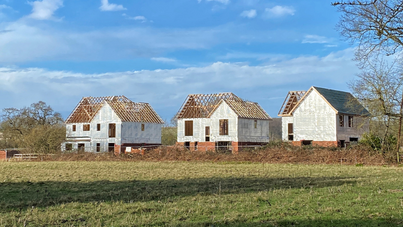Restrictive covenants: Modification of restriction
In the recent case of Mill Strand Developments Ltd -v – James & Susan Tapp and others [2022] before the Upper Tribunal (Lands Chamber), the Tribunal considered the factors for and against granting an application to modify a restriction under section 84 Law of Property Act 1925 (“1925 Act”).
The case
The case involved a 1.24 acre patch of land adjoining the village of Lower Moor, Pershore in Worcestershire (“Site”). In 1972, the Site was conveyed with a restrictive covenant in favour of the adjoining landowner, the Defendants’ predecessor in title. The restrictive covenant prevented: (1) the construction of buildings on the Site which were not of an agricultural nature and (2) the commission of activity which would be a nuisance to the adjoining landowners or lead to the depreciation in the value of their land.
The applicant, a developer who had secured an option over the Site, was granted outline planning consent in December 2016 for the construction of five detached dwellings on the Site and land to the south of the Site. The applicant’s proposals were objected to by five adjoining landowners.
The agricultural use of the Site had reduced significantly over the years due to increasing residential development in the surrounding area and access issues to the Site. Although there were five objectors, the judgment considered the owners of No.4 Old Manor Close to be the only owner substantially affected by the application.
Legal test
The developer brought its application primarily under the grounds set out in section 84(1)(aa) and (c) of the 1925 Act. These were alternative grounds.
Under s.84(1)(aa), the Tribunal may order the modification of a restriction if it is satisfied that:
- The continued existence of the restriction would impede a reasonable use of the Site for public or private purposes or would do so unless it was modified;
- The restriction did not secure any practical benefits ‘of substantial value or advantage’ to the adjoining landowner or, alternatively, was contrary to the public interest. To determine this, the Tribunal shall consider “the development plan and any declared or ascertainable pattern for the grant or refusal of planning permission in the relevant areas as well as the period at which and context in which the restriction was created or imposed and any other material circumstances” (s.84(1B) of 1925 Act); and
- Money was adequate compensation for the modification of the restriction.
Under s.84(1)(c), the Tribunal would need to ensure that a modification would not injure the restriction’s beneficiary.
Tribunal’s decision
The Tribunal held that the applicant had satisfied s.84(1)(aa).
First, the proposed use of the Site was a reasonable one and the planning proposals had been subjected to scrutiny through the planning process. All parties had agreed that the restriction would impede the development.
Secondly, although the restriction did secure practical benefits for the owners of No.4 as it protected the setting of No.4 on the edge of the village and prevented the property from being surrounded by residential development, these benefits were not assessed to be ‘substantial’. The Site had changed over the years to ‘scrubby grassland’ and was likely to remain ‘essentially redundant’ for the purposes of agriculture.
Thirdly, money was likely to be adequate compensation and the Tribunal held that £25,000 should cover any disadvantage to the owners of No.4.
Fourthly, the Tribunal noted the practical context. The restrictive covenant was entered into 50 years ago when an agricultural use was still ongoing and when the planning policy framework would have been different. The Tribunal acknowledged the importance of considerations of housing supply and sustainable development on the policies of local authorities.
However, the alternative ground brought by the developer under section 84(1)(c) was not made out. S.84(1)(c) was not satisfied as the modification would cause injury to the owners of No.4. In this case, this had no effect on the final ruling of the Court as the developer had already been successful in establishing that the modification should be made under section 84(1)(aa).
Points for the future
This case provides useful guidance to parties with an interest in open areas of agricultural land adjoining residential settlements who are considering either making or opposing an application for modification of a restrictive covenant on residential development.
S.84(1)(aa) requires the Tribunal to consider the factual context. In particular, issues of local policy, the current use of the land and the pattern of the grant/refusal of planning permissions in the locality will need to be considered.











